I. Statement of Purpose
These policies and guidelines govern the acceptance of gifts by the LBF and provide guidance to prospective donors and their advisors when making gifts to the LBF.
II. Use of Legal Counsel
The LBF shall seek the advice of legal counsel in matters relating to acceptance of gifts when appropriate. Review by counsel is recommended for:
1. Closely held stock transfers that are subject to restrictions or buy-sell agreements.
2. Gifts involving contracts, such as bargain sales or other documents requiring the LBF to assume an obligation.
3. Transactions with potential conflict of interest that may invoke IRS sanctions.
4. Other instances in which use of counsel is deemed appropriate by the Gift Acceptance Committee.
III. Conflict of Interest
The LBF will urge all prospective donors to seek the assistance of personal legal and financial advisors in matters relating to their gifts and the resulting tax and estate planning consequences.
IV. Restrictions on Gifts
The LBF will accept unrestricted gifts and gifts for specific programs and purposes, provided that such gifts are not inconsistent with its stated mission, purposes, and priorities. The LBF will not accept gifts that are too restrictive in purpose. Gifts that are too restrictive include those that are too difficult to administer, or gifts that are for purposes outside the LBF's mission. The LBF's Gift Acceptance Committee will make all final decisions on the restrictive nature of a gift and its acceptance or refusal.
V. The Gift Acceptance Committee
The LBF's committee shall consists of:
1. Chair of the Board of Directors
2. Treasurer of the Board of Directors
3. Chair or Co-Chairs of the Development Committee
4. Executive Director of the LBF
5. Development Director of the LBF
The Committee is responsible for reviewing gifts to the LBF, properly screening and accepting those gifts, and, when appropriate, making recommendations on gift acceptance issues to the Board of Directors.
VI. Acceptable Giving Methods
The Following methods of giving are generally acceptable:
Cash
Cash, including donations by credit card, is acceptable in any form. Checks shall be made payable to the Louisiana Bar Foundation and shall be delivered to the LBF offices in New Orleans.
Bequests
The LBF's donors will be encouraged to make bequests to the LBF under their wills and trusts. Such bequests will not be recorded as gifts to the LBF until such time as the gift is irrevocable. When the gift is irrevocable, but is not due until a future date, the present value of that gift may be recorded at the time the gift becomes irrevocable.
Tangible Personal Property
The LBF will exercise extreme caution when reviewing proposed gifts of tangible personal property. The following factors will be considered:
- Does the property fulfill the LBF's mission?
- Is the property readily marketable?
- Are there undue restrictions on the use, display, or sale of the property?
- Are there any carrying costs for the property?
The LBF's Gift Acceptance Committee shall make the final determination on the acceptance of tangible property gifts.
Securities
The LBF can accept both publicly traded securities and closely held securities.
Publicly Traded Securities. Marketable securities may be wired to the LBF Trust Account at the Whitney National Bank or delivered physically to the LBF's New Orleans office with the transferor's signature or stock power attached and then forwarded to the Whitney National Bank. As a general rule, all marketable securities shall be sold upon receipt by the bank unless otherwise directed by the investment manager who will receive the securities, generally Whitney Trust Department. The donor will receive average market value on the date of the sale of the securities, or on the date of the deposit into the investment manager's account.
Closely Held Securities. Closely held securities - which include not only debt and equity positions in non-publicly traded companies, but also interests in limited partnerships and limited liability companies, or other ownership forms - can be accepted subject to the approval of the LBF's Gift Acceptance Committee. However, gifts must be reviewed prior to the acceptance to ensure that:
- There are no restrictions on the security that would prevent the LBF from ultimately
converting the assets to cash. - The security is marketable.
- The security will not generate any undesirable tax consequences for the LBF.
Real Estate
Gifts of real estate may include developed property, undeveloped property, or gifts subject to a prior life interest. Prior to acceptance of real estate, the LBF shall require an initial environmental review of the property to ensure that the property has no environmental damage. In the event that the initial inspection reveals a potential problem, the LBF shall retain a qualified inspection firm to conduct an environmental audit. The cost of the environmental audit shall generally be an expense of the donor.
When appropriate, a title binder shall be obtained by the LBF prior to the acceptance of the gift. The cost of this title binder shall generally be borne by the LBF but will be netted against the value of the gift.
Prior to acceptance of the real property, the gift shall be approved by the Gift Acceptance Committee and by the LBF's legal counsel. Criteria for acceptance of the property shall include:
- Is the property useful for the LBF's purposes?
- Is the property readily marketable?
- Is it a full, fee-title interest?
- Are there any restrictions, reservations, easements or other limitations associated with the property?
- Are these carrying costs, which may include insurance, property taxes, mortgages, or notes, etc. associated with the property?
- Does the environmental audit reflect that the property is not damaged?
Remainder Interests in Property
The LBF will accept a remainder interest in a personal residence, farm, or vacation property subject to the provisions of Real Estate Gifts. The donor or other occupants may continue to occupy the real property for the duration of the stated life. At the death of the donor, the LBF may use the property or reduce it to cash. Where the LBF receives a gift of a remainder interest, expenses for maintenance, real estate taxes, and any property indebtedness generally are to be paid by the donor or primary beneficiary.
The donor will receive credit for the value of the property, discounted to reflect the retained ‘life estate' interest. For federal income tax purposes, depreciation, and depletion must also be taken into account in determining the charitable income tax deduction.
Oil, Gas and Mineral Interest
The LBF may accept oil and gas property interests, when appropriate. Prior to acceptance of an oil and gas interest, the gift shall be approved by the Gift Acceptance Committee, and if necessary, by the LBF's legal counsel. Criteria for acceptance of the property shall include:
- Gifts of surface rights should have a value of $20,000 or greater.
- Gifts of oil, gas, and mineral interests should generate at least $3,000 per year in royalties or other income (as determined by the average of the three years prior to the gift).
- The property should not have extended liabilities or other considerations that make receipt of the gift inappropriate.
- A working interest is rarely accepted. A working interest may only be accepted where and when there is a plan to minimize potential liability and tax consequences.
- The property should undergo an environmental review to ensure that the LBF has no current or potential exposure to environmental liability.
Bargain Sales
The LBF will enter into a bargain sale arrangement in instances in which the bargain sale furthers the LBF's mission and purposes. All bargain sales must be reviewed and recommended by the Gift Acceptance Committee and approved by the Board of Directors. Factors used in determining the appropriateness of the transaction include:
- The LBF must obtain an independent appraisal substantiating the value of the property.
- If the LBF assumes debt with the property, the debt ratio must be less than 50 percent of the appraised market value.
- The LBF must determine that it will use the property, or that there is a market for sale of the property, allowing sale within 12 months of receipt.
- The LBF must calculate the costs to safeguard, insure, and expense the property (including property tax, if applicable) during the holding period.
The donor will receive credit for the excess of the value of the property over the sale price.
Life Insurance
The LBF must be named as both beneficiary and irrevocable owner of an insurance policy before a life insurance policy can be recorded as a gift. The gift is valued at its interpolated terminal reserve value, or cash surrender value, upon receipt. If the donor contributes future premium payments, the LBF will include the entire amount of the additional premium payment as a gift in the year that it is made.
If the donor does not elect to continue to make gifts to cover premium payments on the life insurance policy, the LBF may:
- Continue to pay the premiums.
- Convert the policy to a paid-up insurance.
- Surrender the policy for its current cash value.
Life Insurance Beneficiaries Designation
The LBF's donors will be encouraged to name the Foundation as beneficiary or contingent beneficiary of their life insurance policies. Such designations shall not be recorded as gifts to the LBF until such time as the gift is irrevocable. Where the gift is irrevocable, but is not due until a future date, the present value of that gift may be recorded at the time the gift becomes irrevocable.
Charitable Gift Annuities
The LBF may accept charitable gift annuities where the gift for funding is at least $25,000. The LBF's Gift Acceptance Committee may make exceptions to this minimum. The minimum age for life-income beneficiaries of a gift annuity shall be 55. Where a deferred gift annuity is offered, the minimum age for life income beneficiaries shall be 45. No more than two life income beneficiaries will be permitted for any gift annuity.
Charitable Remainder Trusts
The LBF may accept designation as remainder beneficiary of a charitable remainder trust with the approval of its Gift Acceptance Committee. The LBF will not accept appointment as Trustee of a charitable remainder trust.
Charitable Lead Trusts
The LBF may accept a designation as income beneficiary of a charitable lead trust. The LBF will not accept an appointment as Trustee of a charitable lead trust.
Retirement Plan Beneficiary Designations
The LBF's donors will be encouraged to name the LBF as beneficiary of their retirement plans. Such designations will not be recorded as gifts to the LBF until such time as the gift is irrevocable. Where the gift is irrevocable, but is not due until a future date, the present value of that gift may be recorded at the time the gift becomes irrevocable.
VII. Pass-Through GiftsThe LBF is not a pass-through vehicle. It cannot accept a gift on behalf on non-501(c)(3) entities for the purpose of providing the donor with a tax deduction.
VIII. Miscellaneous Provisions- Securing appraisals and legal fees for gifts to the LBF generally will be the responsibility of the donor. Fees borne by the LBF will be netted against the value of the gift.
- The LBF will record gifts received at its valuation on the date of receipt.
- The Gift Acceptance Committee of the LBF is responsible for filing IRS Form 8282 upon the sale of disposition of any asset sold within two years of receipt by the LBF when the charitable deduction value of the item is more than $5,000. The LBF must file this form within 125 days of the date of sale or disposition of the asset.
- Acknowledgment of all gifts made to the LBF and compliance with the current IRS requirements in acknowledgment of such gifts shall be the responsibility of the LBF office and will be in accordance with the LBF Donor Acknowledgment Policy.
IX. Changes to Gift Acceptance Policies
The LBF Board of Directors must approve any changes to, or deviations from, these policies.






